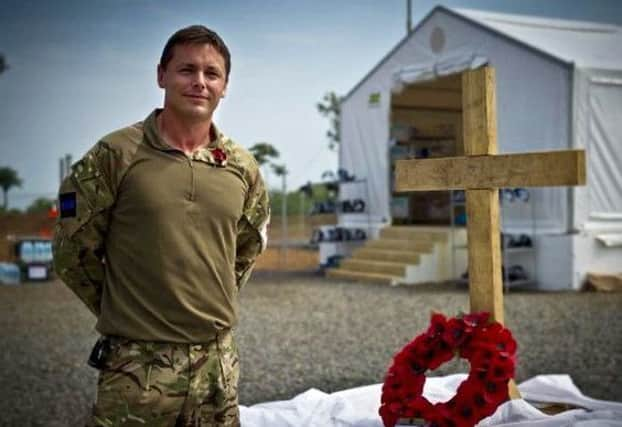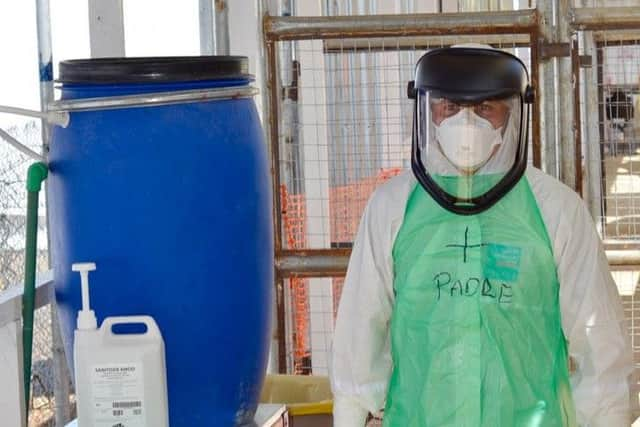North Berwick army chaplain tells of Sierra Leone mercy trip


Rev Chris Kellock had little time to prepare for the trip which saw him spend 101 days supporting military medical staff – as well as relatives of people struck by the deadly disease – at an army field hospital near Kerrytown.
The 44-year-old, from North Berwick, will speak publicly about the trip for the first time tomorrow at Morningside Parish Church as part of a series of lectures about chaplaincy.


Advertisement
Hide AdAdvertisement
Hide AdRev Kellock, who is chaplain to the 1st Battalion The Royal Regiment of Fusiliers, described his time at the 22 Field Hospital as a “tremendous challenge and a great privilege”.
He said: “I’m glad I went and I would do it again. If you read through the history of military chaplains, that is where the essence and heart of what we do is crystallised – supporting spiritually, morally and pastorally the men and women who are at the sharp edge.”
Rev Kellock spent nearly three weeks undergoing training before being deployed in September 2014.
The field hospital treated people employed by charities and healthcare workers who had contracted Ebola. He was responsible for the care of the pastoral and spiritual needs of around 100 staff – consultants, nurses, logistic support and pharmacists – and patients, whose survival chances were determined by how healthy they were before being infected.


Advertisement
Hide AdAdvertisement
Hide AdHe said he was never really worried about catching Ebola due to the rigorous processes and procedures in place at the facility, but there were a few stressful moments.
He said: “Ebola is a violent disease which, at that point, was not stopped by any medical intervention. There was a real fear that the number infected was going to disappear through the roof.
“A family of someone in the unit came in and the mother, who was in the clean area, was distraught. So I did what was natural and I put my arm around her and walked with her.
“I was not wearing a protective suit and it was only afterwards that I thought ‘crikey, I just put my arm round somebody who has a relative with Ebola’.”
Advertisement
Hide AdAdvertisement
Hide AdRev Kellock and medical staff were only allowed to spend up to 40 minutes at a time in the unit due to the horrendous temperatures and humidity.
He said: “Military chaplaincy takes on a different hue when you are in a situation when there is pressure and stress – it stretches you. People appreciated the quiet times that I set aside, people came to Sunday services at the camp and appreciated the space to contemplate the sense that there was something broader and bigger at play.
“I had a lot of conversations about the nature of life and death and of course that has an effect on you. People’s own understanding of mortality and what is important in life takes on a clearer and sharper dynamic. When you have children yourself some of the things you take for granted hits home again.”